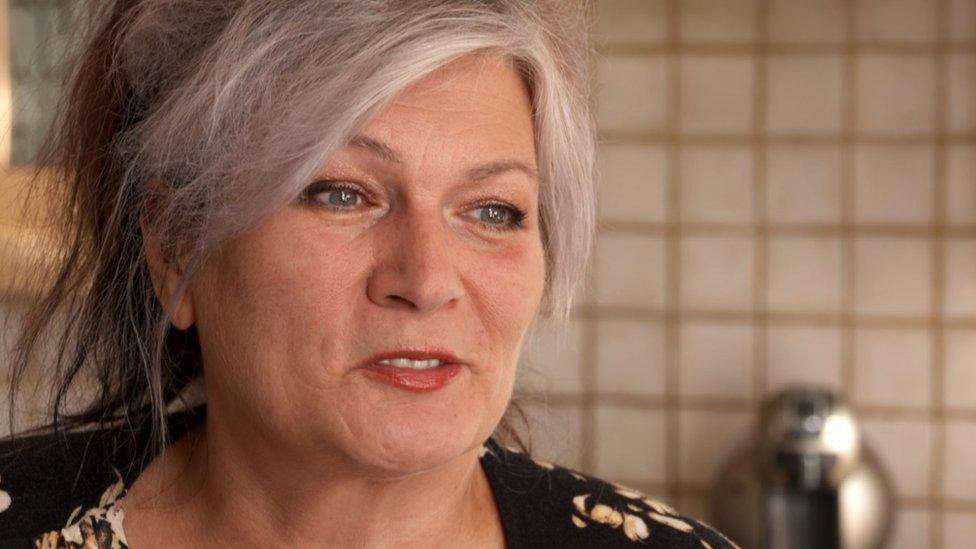UK-Polish ties to be 'stronger' after Brexit insists May
- Published
- comments
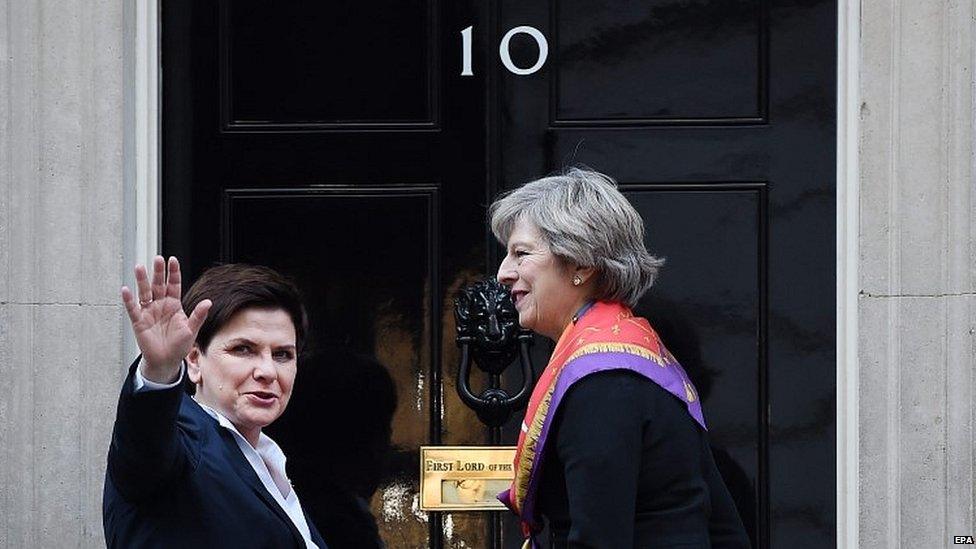
The two leaders are discussing defence and post-Brexit relations
Theresa May has insisted that Brexit will not stand in the way of the UK strengthening its ties with Poland.
The prime minister signalled closer co-operation in defence, cyber security and enterprise during Downing Street talks with counterpart Beata Szydlo.
She said she wanted an "early" resolution to negotiations over the future legal status of the 900,000 Polish citizens living in the UK.
Ms Szydlo said this was a vital issue but understood reciprocity was needed.
At a press conference in No 10 following the first-ever UK-Polish summit, Mrs May also confirmed the UK is to send 150 troops to Poland to help "deter Russian aggression" in Europe. They will be deployed in April close to the Polish border with the Russian enclave of Kaliningrad.
'Right balance'
On the crucial issue of residency and employment rights, Ms Szydlo said Polish citizens in the UK needed certainty about their future after Brexit, telling reporters she hoped negotiations would yield "the right balance" for both the UK and the EU.
"From the point of view of Poland, let me reiterate that the most important thing (after Brexit) is the guarantees for the Polish citizens who are living and working in the United Kingdom," she said. "Of course, these guarantees would need to be reciprocal."
Mrs May said she wanted to give Poles and other EU citizens living in the UK certainty but she said any agreement depended on Britons living elsewhere in Europe having equivalent assurances over their rights.
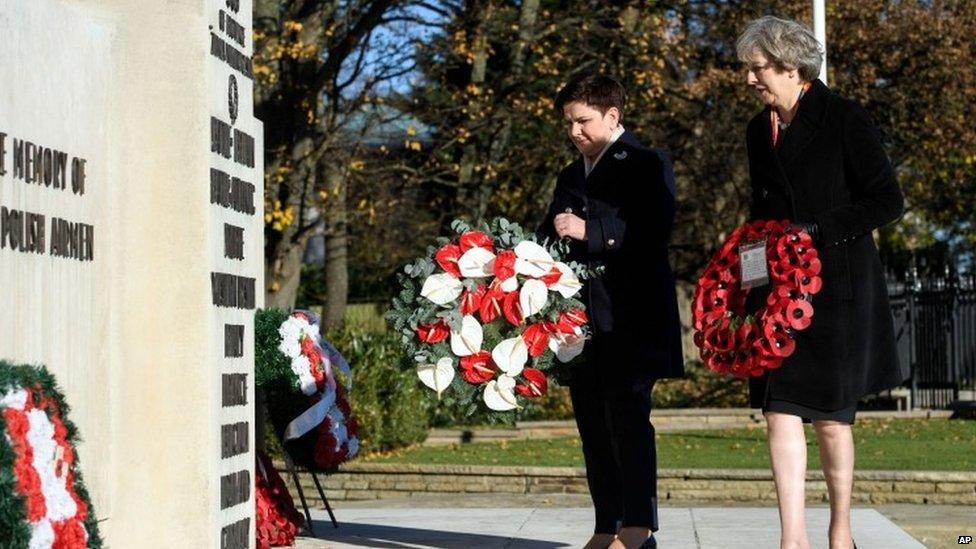
The UK's historical, cultural and economic ties with Poland are being emphasised
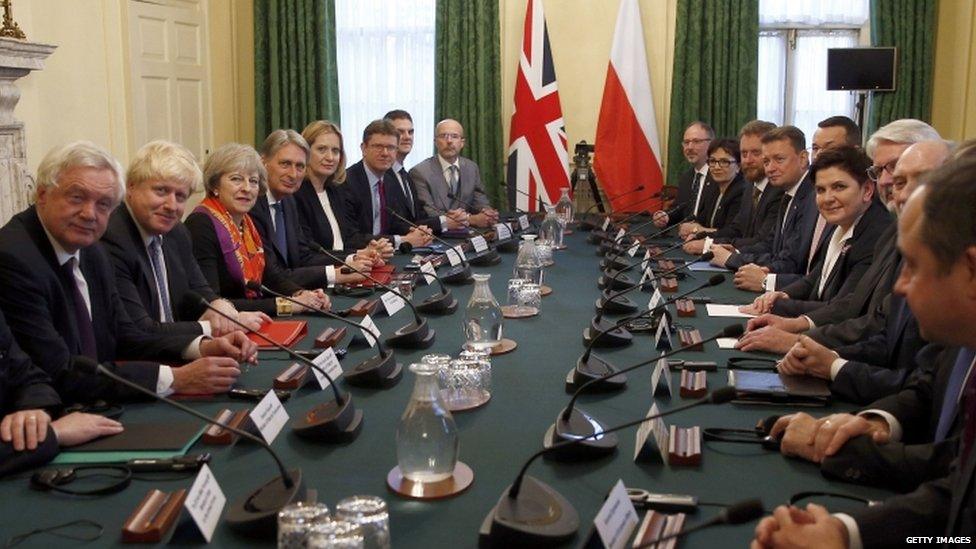
While senior ministers from both countries held roundtable talks
During the visit to London, Mrs May and Ms Szydlo discussed Brexit and defence co-operation over a working lunch, while senior ministers, including Foreign Secretary Boris Johnson and Chancellor Philip Hammond, met their counterparts at Lancaster House.
The leaders and ministers then held formal talks in the Cabinet Room at 10 Downing Street on issues ranging from trade and scientific co-operation to concerns about Moscow's military actions in Ukraine and Syria.
'Shared history'
Mrs May said she was determined that Brexit would not stand in the way of stronger economic and cultural ties between the two countries, announcing a series of joint initiatives on enterprise, innovation and cyber security and the ambition of a first-ever bilateral defence treaty between the two nations.
Mrs May provided more details of the deployment next Spring of around 150 troops from the Light Dragoons, along with a number of armoured vehicles, to Orzysz in north-east Poland, close to the border with Kaliningrad, which houses Russia's Baltic fleet.
The move, she said, was a response to Russian aggression on the "eastern flank of Europe".
Mrs May said: "Our ties with Poland are rooted deeply in our shared history. We will never forget the Polish pilots who braved the skies alongside us during World War Two, standing up for freedom and democracy in Europe, nor the valuable contribution made by so many Poles in our country today.
"I am determined that Brexit will not weaken our relationship with Poland - rather it will serve as a catalyst to strengthen it."
'Down-to-earth'
Mrs May added that the summit "marks the start of a new chapter in our relations and we will work even more closely together to ensure the security and prosperity of our nations in the years ahead".
"Today's meeting puts beyond doubt the common ground we share, the importance we attach to our bilateral relationship and the benefits it brings. We share a clear commitment to take our co-operation to the next level and to firmly establish the UK and Poland as resolute and strategic allies in Europe."
Mrs May has promised to trigger Article 50 of the Lisbon Treaty, which starts the legal process for Brexit, by the end of March.
Formal negotiations cannot begin until then, but the UK prime minister is holding informal discussions with other EU leaders to find out their views.
Ms Szydlo said the Brexit process would be "interesting" and negotiations must take place in a spirit of "mutual trust".
Warsaw has raised concerns about the abuse of Poles in the UK following the Brexit referendum, with a rise in incidents of alleged hate crimes. Ms Szydlo said the incidents that occurred were "very sad" and thanked the UK authorities for their "quick reaction"
"We continue working together in order to make sure that the Polish community is safe," she added.
- Published22 July 2016
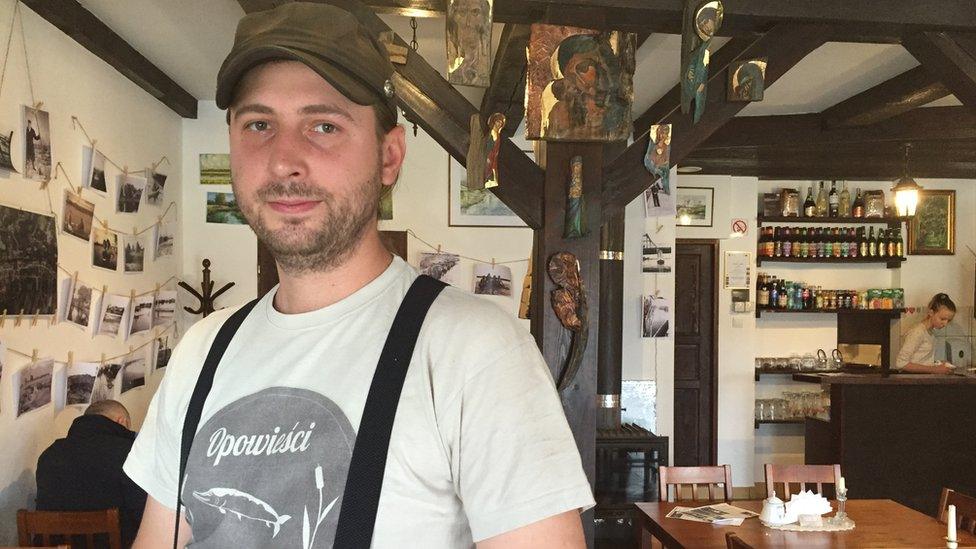
- Published28 October 2016
